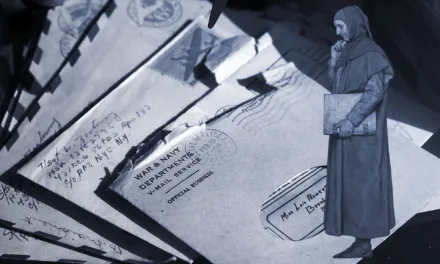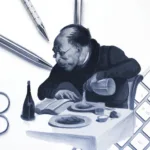
Why Giving Characters Control of Your Story is Good For Your Narrative

As writers, we like to think we’re in complete control of our characters. It can be tempting to think that, because your name is in the byline, clearly, this story is yours. But what if the story really belongs to the characters?
Think back on the writing you’ve done in the past. Have you ever been surprised by something one of your characters did? Ever been frustrated by an unexpected turn your character made from your cleverly and carefully planned outline?
Let’s explore this possibility.
What do readers want?
What do readers want from our characters? Some delight in happy endings, where a worthy character suffers, perseveres, and is redeemed. Others may want characters to suffer punishment for their wicked deeds, seeking justice against evil characters to balance the moral scales. Still, others may simply want to escape their own troubles and take a ride on someone else’s pain train.
Our favorite books may contain exotic worlds, powerful magic, or intricate plots. But great stories demand interesting characters to hold the reader’s attention. Any story worth telling has, at its core, at least one charismatic hero, a sinister villain, a plucky upstart, or a troubled soul.
In every case, compelling characters transport the reader away from the real world. They must be magnetic and flawed, internally consistent, exciting, and, most of all, memorable.
Let your characters lead

As I write my novel, I keep these thoughts in the forefront of my mind:
What a character wants vs what they need
I want my main characters to reveal not only what they desire at the outset but also the deeper goal or requirement that they need to resolve by the end of the book. This should appear early in the story and should be something difficult to attain. What the main character wants or desires early in the story should be simple—a distraction or a false promise—all in service of revealing what the character really needs to reach their ultimate goal.
Make sure there are stakes
Whatever essential thing is threatened for the main character—whether an artifact, a relationship, or a moral code—the possibility of loss must be devastating to the main character. They need to feel they cannot live without it. Therefore, I cannot choose something trivial, replaceable, or tangential. Whatever I choose to attack must be truly essential to the character.
Don’t write perfect characters
Perfect characters are boring. People worth reading about must fail and then learn from that failure so they develop. I need to create opportunities for my characters to faceplant and fail because that will help them grow and, ultimately, make their eventual success that much more compelling.
Determine what makes your character special
When I discover the unique skills that make my protagonist perfect to deal with the central conflict, I need to ensure those skills are unique, rare, and special, like a key that fits only this lock. I also need to introduce that specialness early in my story so the reader is prepared when the character needs to use it.
Make action relevant
When I write action, especially if it facilitates character change, I avoid action that is there just for the sake of it. Action is characters making choices and experiencing the consequences, so everything hinges on a character making a decision and then suffering as a result. So, if I come up with the ending first, and the characters take a detour and roam away from my perfect ending, I have to be ok with following them and discovering the new and probably better ending they want to write for themselves.
I love this quote from James Joyce in The Portrait of the Artist as a Young Man:
“The artist, like the god of the creation, remains within or behind or beyond or above his handiwork, invisible, refined out of existence, indifferent, paring his fingernails.”
We, the writers, must work tirelessly to become invisible. That means letting the characters steal the show because, if you think about it, it’s THEIR show. Compelling characters must drive their own bus, make their own mistakes, and seek and find their own solutions.
Our main job is to show up to work each day and write the words so well that we disappear from the reader’s thoughts. We must build characters so compelling that they fill the spotlight, leaving us as the disembodied narrator, the byline, the ghost melting into the mist, utterly invisible.






























